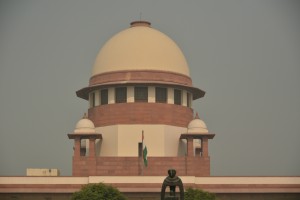Supreme Court: In the case where the appellants were involved in at least 24 cases of various offences allegedly committed between 1988 and 1995 and one was alleged to have committed murder and robbery in the year 1988, the Court refused to rely upon the opinion of the medical board in determining the age of the appellants, in the absence of the other cogent evidence, so as to give benefit under the provisions of Juvenile Justice (Care and Protection of Children) Act, 2000. The Court said that the purpose of Juvenile Justice Act, 2000 is not to give shelter to the accused of grave and heinous offences.
As per the medical report submitted in the year 2016, the appellants would have been born in the year 1979. The Court said that, going by the report, one accused would have been 9 years old at the time of commission of his first offence in the year 1988 and the other would have been 14 at the time of commission of his first offence in the year 1993. The bench of Dr. A.K. Sikri and R. Banumathi, JJ added that had it been so, when the appellants were produced in those cases the appellants would have been considered as ‘children’ by the very appearance. They would have been dealt with accordingly by the concerned juvenile court and the matters would not have been kept pending till this date. Hence, the opinion of the Medical Board determining the age of the appellants as 35-40 years in May, 2016 cannot be relied upon.
Stating that medical evidence as to the age of a person though a very useful guiding factor is not conclusive and has to be considered along with other circumstances, the Court said that a blind and mechanical view regarding the age of a person cannot be adopted solely on the basis of the medical opinion by the radiological examination. The Court hence, rejected the plea of juvenility of the appellants in the absence of other cogent evidence. [Mukarrab v. State of U.P., 2016 SCC OnLine SC 1413, decided 30.11.2016]

